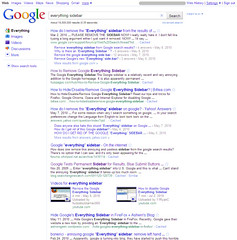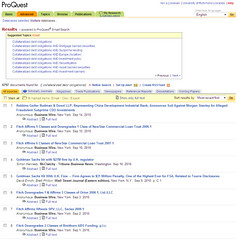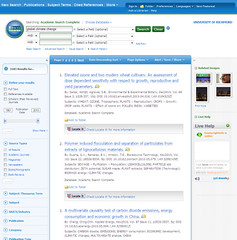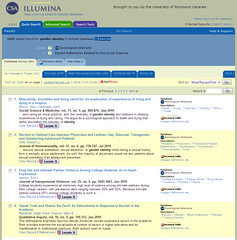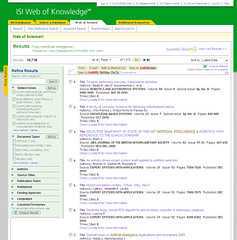
Speaker: Bob Fernekes
The Gang of Four: Google, Apple, Amazon, & Facebook
Google tends to acquire companies to grow the capabilities of it. We all know about Apple. Amazon sells more ebooks than print books now. Facebook is… yeah. That.
And then we jump to selecting a discovery service. You would do that in order to make the best use of the licensed content. This guy’s library did a soft launch in the past year of the discovery service they chose, and it’s had an impact on the instruction and tools (i.e. search boxes) he uses.
And I kind of lost track of what he was talking about, in part because he jumped from one thing to the next, without much of a transition or connection. I think there was something about usability studies after they implemented it, although they seemed to focus on more than just the discovery service.
Speaker: Alison Steinberg Gurganus
Why choose a discovery system? You probably already know. Students lack search skills, but they know how to search, so we need to give them something that will help them navigate the proprietary stuff we offer out on the web.
The problem with the discovery systems is that they are very proprietary. They don’t quite play fairly or nicely with competitor’s content yet.
Our users need to be able to evaluate, but they also need to find the stuff in the first place. A great discovery service should be self-explanatory, but we don’t have that yet.
We have students who understand Google, which connects them to all the information and media they want. We need something like that for our library resources.
When they were implementing the discovery tool, they wanted to make incremental changes to the website to direct users to it. They went from two columns, with the left column being text links to categories of library resources and services, to three columns, with the discover search box in the middle column.
When they were customizing the look of the discovery search results, they changed the titles of items to red (from blue). She notes that users tend to ignore the outside columns because that’s where Google puts advertisements, so they are looking at ways to make that information more visible.
I also get the impression that she doesn’t really understand how a discovery service works or what it’s supposed to do.
Speaker: Athena Hoeppner
Hypothesis: discovery includes sufficient content of high enough quality, with full text, and …. (didn’t type fast enough).
Looked at final papers from a PhD level course (34), specifically the methodology section and bibliography. Searched for each item in the discovery search as well as one general aggregator database and two subject-specific databases. The works cited were predominately articles, with a significant number of web sources that were not available through library resources. She was able to find more citations in the discovery search than in Google Scholar or any of the other library databases.
Clearly the discovery search was sufficient for finding the content they needed. Then they used a satisfaction survey of the same students that covered familiarity and frequency of use for the subject indexes, discovery search, and Google Scholar. Ultimately, it came down that the students were satisfied and happy with the subject indexes, and too few respondents to get a sense of satisfaction with the discovery search or Google Scholar.
Conclusions: Students are unfamiliar with the discovery system, but it could support their research needs. However, we don’t know if they can find the things they are looking for in it (search skills), nor do we know if they will ultimately be happy with it.

